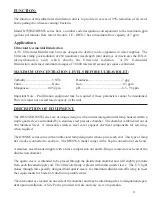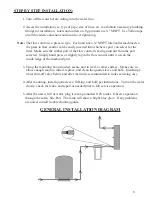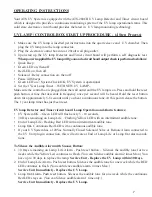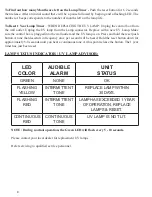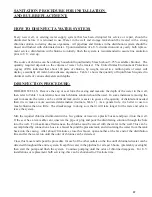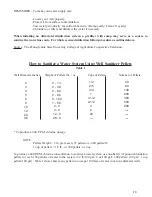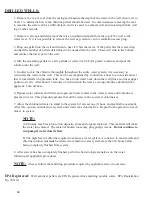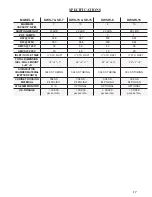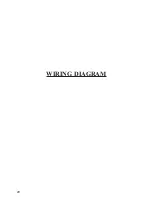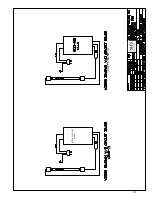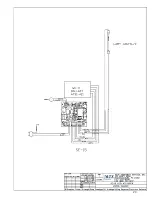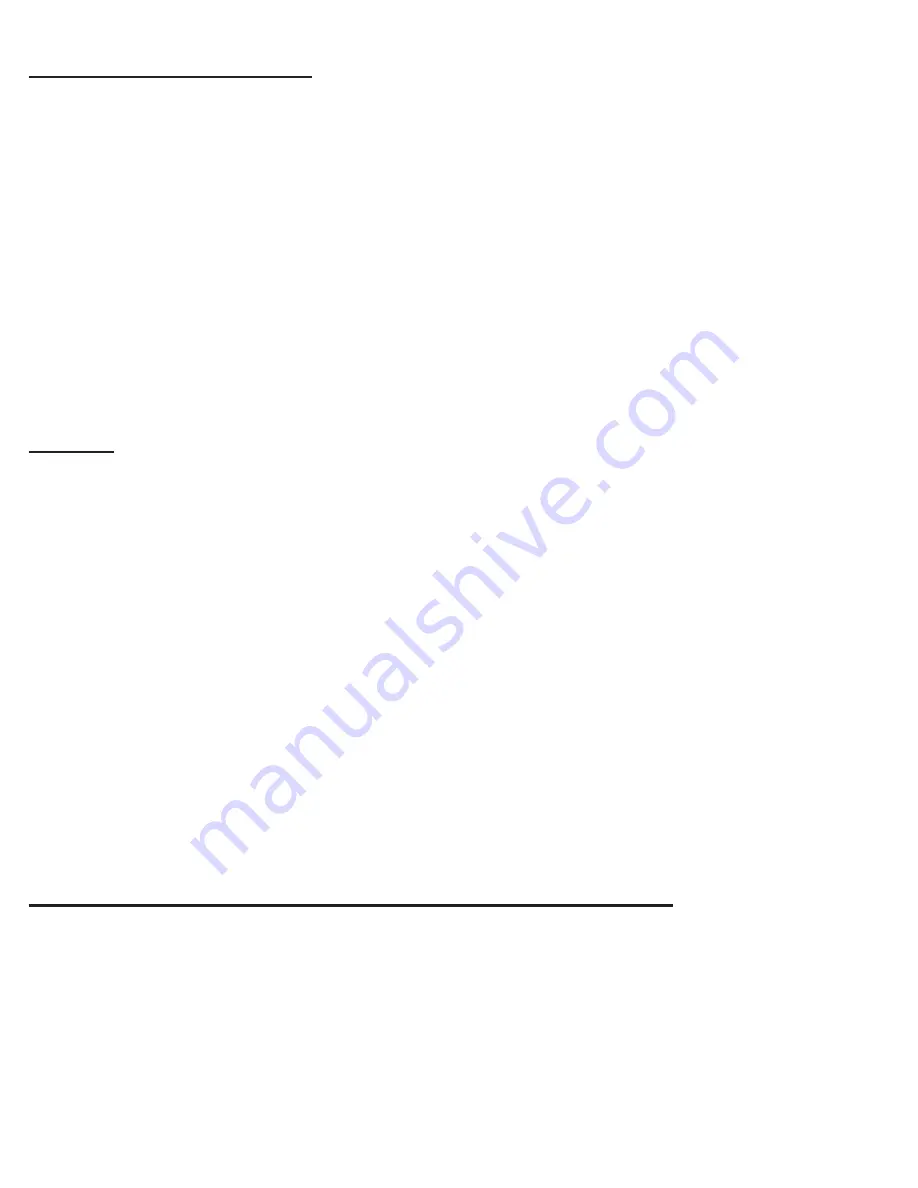
12
LARGE DIAMETER WELLS:
Dug or bored wells should be disinfected in the same way as a drilled
one. Lower the water level as much as possible, remove the sand, silt and debris, and then treat with the chlorine
solution. Mix thoroughly by circulating the water back into the well and use the hose to rinse the interior
lining of the well. Do not try to disinfect an unprotected, unlined well because new seepage or surface
contamination will flow into the water about as fast as you can disinfect it. Disinfect the pipeline distribution
system as indicated for drilled wells.
SPRINGS AND CISTERNS
:
Mix about ½ cup of household bleach in 5 gallons of water and use this to
scrub the walls of the spring box or holding tank. With a constant flow of fresh water from the spring, there is
probably no way of detaining the chlorine solution in the reservoir for more than a few minutes. However, the
chlorinated water should flow through the pipeline to disinfect the distribution system. Cisterns can be disin-
fected in the same way but a source of clean water will be needed to flush the dirty waste out of the system.
For additional information about how to protect wells and springs and keep them from becoming contaminated,
call or visit your local Cooperative Extension office, or your nearest certified water treatment specialist.
TABLE 1
**
Quantity of solution mixed - 5.25% available chlorine (laundry bleach) for disinfecting
wells, or 52,500 P.P.M..
WQA recommends 50mg/l or ppm chlorine concentration.
Formula - C
2
X V
2
/ C
1
= V
1
C
1
= Household Bleach (52,500 P.P.M.)
V
1
= Chlorine Amount Needed
C
2
= 50 mg/L V
2
= 80 gallons holding time
I.E. 50-ml/g X 80 gal= 4000/52,500= .08 gallons of chlorine (5.25%)
.08 gal chlorine (5.35%) X 128 (oz/gal) = 10.24 oz (5.25%)
Dug Wells - 3 to 4 feet diameter - 4 cups per foot of water
Drilled Wells - 3 to 8 inch diameter - 1 cup per foot of water
TOO MUCH CHLORINE IS BETTER THAN TOO LITTLE:
**
In situations where it is inconvenient to determine depth of water or diameter of a drilled well, a
minimum of 1/2 gallon of household bleach may be used for wells up to 8 inches in diameter with estimated to
be less than 80 feet deep; 1 gallon should be used for similar size wells with water deeper than 80 feet. In case
of a well yielding more than 50 gallons per minute, special procedures are required. Seek the advice of a
certified water treatment specialist.
Wait a day or two before you have another sample tested.
Do not take a sample for testing if the odor of
chlorine is still present in water.
Summary of Contents for DWS-15
Page 6: ...6 ATS 280CB RESET BUTTON MOUNTED UNDER TOP PLATE OUTLET MAINS BALLAST LAMP...
Page 19: ...19...
Page 20: ...20 WIRING DIAGRAM...
Page 21: ...21 ATS1 421 CCASE WH 3C DWS 15 DWSW 15...
Page 22: ...22 ATS1 421 CCASE WH 3C...
Page 23: ...23...
Page 24: ...24 ATS1 421 WH 3C...
Page 25: ...25...
Page 26: ...26...
Page 27: ...27 DRAWING AND PART NUMBERS...
Page 28: ...28 DWS 7 Explosion...
Page 30: ...30 DWS 15 Explosion...
Page 32: ...32 SE 7 Explosion...
Page 34: ...34 SE 15 Explosion...
Page 36: ...36 DWSW 8 Explosion...
Page 38: ...38 DWSW 15 Explosion...



